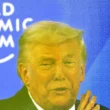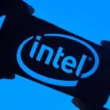Peter Thiel’s recent obsession with apocalyptic themes, particularly his fascination with the concept of the Antichrist, seems to originate from a profound conversation he had over thirty years ago with an Austrian theologian about Nazi jurist Carl Schmitt’s views on power and unification. For two years, the billionaire has embarked on a speaking tour, sharing his biblically inspired doomsday ideas with a range of confused interviewers. His discussions delve into the dangers of modern technology, societal decline, and the real threats posed by the Antichrist—a figure he believes represents the ultimate unifier that could lead humanity to its doom.
Thiel’s roadshow began with a low-profile lecture at a Paris conference dedicated to René Girard, a theorist he deeply admires. In this talk, he characterized the modern world as anxious and resistant to technological innovation, warning that our efforts to avert disasters such as nuclear war or environmental collapse could lead us to something even worse—the Antichrist. He argues that the Antichrist will rise to power by exploiting humanity’s technological fears and enticing us with promises of peace and safety.
He illustrated this argument with a critique of figures like philosopher Nick Bostrom, who advocates for global governance systems as safeguards against AI risks. For Thiel, such proposals embody the very essence of the Antichrist, who escalates fears to manipulate and unify the populace. His concerns are informed by Girardian theory, which suggests that unchecked mimetic rivalry could culminate in violent societal collapse—an apocalypse he is genuinely apprehensive about.
When challenged about practical steps to counter this imminent disaster, Thiel cryptically advised focusing on spiritual solutions, echoing Girard’s notion that people should seek solace in church teachings. His views have evolved, now more openly reflecting on teachings from Wolfgang Palaver, a theologian who once collaborated with him on critical discussions surrounding Schmitt’s legacy.
Their dynamic relationship highlights a tension between Thiel’s views on power strategies and the non-violent teachings of Girard. Palaver, who has long opposed Schmitt’s harmful ideologies, finds himself increasingly concerned that Thiel’s interpretation may lead to a distorted understanding of their shared intellectual heritage, where Girard’s calls for peace transform into a call for vigilance against perceived threats.
While both men have navigated similar academic landscapes, their paths diverged significantly in moral outlook. Palaver advocates for a conscientious rejection of scapegoating, while Thiel appears increasingly entangled in the kind of political maneuvering he claims to condemn.
As the National Conservatism movement, which Thiel supports, aims to reshape U.S. politics through traditionalist lenses, his complex relationship with figures like JD Vance—whom he has mentored—underscores the contradictions in aligning with populist movements that may employ scapegoating tactics. This ongoing entanglement raises essential questions about Thiel’s genuine commitment to the ideals he espouses versus the pragmatic power plays he participates in.
Thiel’s focus on a potential Antichrist may serve as a warning against a unified global order, yet his methods—investing in surveillance technologies and supporting nationalist politics—risk mirroring the same destructive forces he seeks to avert. He grapples with a profound fear of societal collapse and a desire for security, leading to investments that create tools often associated with authoritarian regimes.
Despite his significant influence due to financial power and technological reach, Thiel’s ideological journey encapsulates the struggle between seeking refuge in secure structures while simultaneously critiquing their implications on freedom and moral integrity. Ultimately, it is within this turbulent nexus of politics, theology, and technology that the story of Peter Thiel’s Antichrist obsession unfolds—a narrative that reflects wider societal anxieties and the quest for meaning in an increasingly uncertain world.











